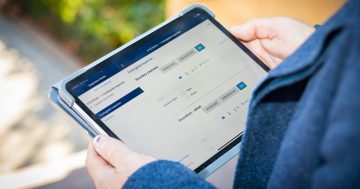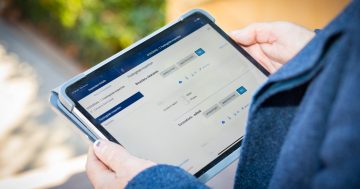
If you’re confused by all this talk of “cloud computing”, you’re not alone.
It’s one of those terms that everyone uses, but not a lot of people seem to know what it means.
The term has become synonymous with the internet in recent times, and many are proclaiming its wonders and ability to save individuals and businesses a ton of money, time and stress.
So … what is it? And how exactly does it work?
Rahul Chawla, tech mastermind from Technowand in Mitchell, has been helping local businesses replace their traditional infrastructure with cloud computing for years.
“It’s the way of the future,” says Rahul. “Gone are the days of expensive servers, email exchange and software licenses that only last a few years. You don’t need to spend hundreds or thousands of dollars on anti-virus or Microsoft Office software. You don’t even really need to own a powerful computer anymore.
When you’re in the cloud, you’re working online. There are no large servers taking up space in your office, or clunky software programs slowing your computer down. All the data and software is stored on servers at a remote location. And because these servers are dedicated to providing that service, they are, by nature, faster and more secure than anything you would have traditionally had on site.”
So cloud computing basically means working over the internet – rather than locally. You access your software programs by logging into your online account, rather than opening up the program on your laptop or computer. It seems there is now little difference between clicking ‘Open’ in My Programs or ‘Open’ in My Favourites.
Some programs, like Microsoft Office, allow you to use your software locally or online. You buy a subscription that keeps you up-to-date with the latest Office versions, but you can still opt to work offline. And instead of paying hundreds of dollars for a CD and then installing it, you can pay as little as $18 a month and get instant access (for a single user).
From a business perspective, the general consensus is that you can save thousands of dollars by avoiding purchasing servers or software, and adopting the new “per user” cloud approach.
“When we sign up a new business, we go through every piece of software they need – from email to data storage, accounting software, antivirus and so on. Then we create a cost for every user that needs access to that software, which is generally very affordable.”
Technowand can also offer unlimited desktop/technical support services within the monthly fee, where businesses can call IT support whenever they need help (without having to hire an IT manager).
“We’re committed to absolute convenience where IT is concerned. And cloud computing provides incredible convenience for just about any type of business.”
To learn more about Technowand and their cloud, IT support, web design and software development services, contact them on 6100 2135 or visit https://technowand.com.au.
This is a sponsored article, though all opinions are the author’s own. For more information on paid content, see our sponsored content policy.




















